#and then you realise it’s just the animated version of Meryl Streep
Text
‘Mamma Mia!’ and ‘Mamma Mia! Here We Go Again’ – A Conjoined Movie Review

First of all, let me just say that this film has one of the best, most appropriate subtitles I’ve ever seen in a sequel. This film probably exists because someone realised how naturally perfect it would be to call the follow-up to Mamma Mia! the very next line in the song, “Here We Go Again”. After that, it was likely a given that this thing had to be made just to get this title out into the world. Credit where it’s due, I really do like that subtitle. It perfectly sums up the film’s subject matter, as well as the feelings that a sequel to Mamma Mia! would invoke, both for the fans excited for another fun trip, and for the less keen audience members who are begrudgingly rolling their eyes as they resign themselves to going through this song and dance one more time.
As to the question of which of these two camps I fall into, I’d like to apologise for how I’ve spoken about the first film in an unbearably domineering and, at times, meanly derisive way in the past. I remember numerous conversations about Mamma Mia! where I latched onto the weaknesses and elements of the film which most irritated me and proceeded to blow them up to exaggerated levels for little justification beyond simply picking on what I felt was an easy target. That entitled attitude which puts films down in a way that can make other people feel bad for enjoying something isn’t cool, and it’s not the kind of person, moviegoer, or critic I want to be going forward. I’m sorry for that behaviour.
But get to the point Toby; what do you think about the first movie? Well, as you can probably tell, my opinion on it has softened, even if it has problems I find difficult to ignore. The narrative and character motivations still seem weak and that gets in the way of me really investing enough to get through the movie without checking my watch a few times. Also, even if you put aside the inherent difficulty of having a jukebox musical resonate anywhere near as strongly as a production with songs specifically written to fit with the story being told, there are a few moments where the film drags. Part of this can be attributed to one or two characters who leave so little of an impression that they and the songs dedicated to them could lift straight out of the movie. Apart from that and the occasional nitpick here or there, the rest of the movie is fine, harmless, and honestly pretty enjoyable. The cast have an infectious enthusiasm, the song numbers are choreographed with energy and refreshing self-awareness, and the singing… hmm.
Okay, the thing about some of the actors not being able to carry a note is that, on the one hand, yes, it is reasonable to expect a musical to have competently executed music, and without singling anyone out… bless them, they really are trying. But then, I think that’s honestly part of the appeal. These are songs that all the audience members who are on board with the film will know, and not everyone in that audience is going to be a great singer either. Having a mix of quality to the film’s singers actually comes across as relatively inclusive, as if the film is saying “ah, don’t sweat it if you’re no Agnetha Fältskog, just enjoy yourself”. I’ll always appreciate a film where that sort of intention comes across. Even if I can’t fully gel with Mamma Mia!, I still catch myself having a good time with it here or there if it’s on.
I take this long telling you my thoughts on the first film so that when I say this new sequel to Mamma Mia! not only improves on the original, but also moved me to the point where I was getting quite emotional as I fought back the tears, you can understand why I’m as alarmed as I am. Understand, I don’t want to oversell this as being a complete transformation that leaves the original far behind. Here We Go Again is still the same kind of animal as Mamma Mia!. It’s still light-hearted and doesn’t take itself too seriously, its mission is still to have a fun time and cater to its audience’s nostalgia with some familiar tunes and faces, and if you’re staunchly opposed to the first one, then odds are this sequel won’t make you suddenly convert.
And yet Here We Go Again features so many little improvements to its framework in addition to its emotional gut punch secret weapon that it honestly stacks up as the better of the two movies in my opinion, even with it having to fight the inherent set-back of already using the bulk of ABBA’s greatest hits the first time around. Director Ol Parker and cinematographer Robert Yeoman make the camera a much more active participant in the musical numbers this time around, moving with a deliberate purpose as it dances around the characters and plays with the two timelines the film bounces between. The film simultaneously follows Amanda Seyfried’s character struggling to get the hotel reopening to run smoothly in the present as well as Lily James playing the younger version of her mother, Meryl Streep’s character, in flashbacks to the past as we see how she met each of the three potential fathers. At first, it’s difficult to see any connection between the stories being told in each timeline, but the visuals nevertheless weave them smoothly enough together that I didn’t necessarily mind. By the end of the film, however, when the story reveals its full hand, the two timelines marry together wonderfully, but I’m getting ahead of myself.
Another improvement is that the songs are integrated more naturally, with far fewer instances of the movie bending over backwards or going off on an awkward tangent just to weakly justify shoehorning in a particular song. The less musically inclined members of the cast still don’t sing particularly well, but they’re wisely implemented so that it doesn’t fall to them to carry an entire song by themselves, whether by placing them in a larger group or by giving them a short rendition of a song that relies far more on their emotional performance than it does on the technical quality of their singing voice. Little positive adjustments like these are present throughout, and they add up to make a big difference which I appreciated.
So how the hell did a sequel to Mamma Mia! strike an emotional chord with me? Strangely enough, through a story direction which, when I first heard it at the start of the film, seemed like such a bizarre direction for Mamma Mia! to go in that I couldn’t help but laugh as I was so surprised: they killed off Meryl Streep’s character! I mean, I guess I figured it would be difficult to get her back for long, if at all, so this is one solution I suppose, but still… really? One of the main characters from the first movie, a nostalgia fuelled exercise in light-hearted escapism with fun protagonists that were positioned as people you could identify with, is dead at the start of the next film? Um… I guess that will make watching the first film a little more bittersweet, huh? Such a strange direction to take, and yet, and I’m as surprised as anyone else about this, but Mamma Mia! Here We Go Again makes the death of this character and the emotional impact it has on the rest of the cast work!
You see, as the film goes on you start to realise that it’s about struggling with the idea of doing a parent proud when they’re no longer around, and how when the bumps in the road come up, they feel so much worse because it feels like you’re letting that dear person down. But at some point, you reach a revelation that going through all of this and feeling unsure is okay, because they went through the same thing and, in all likelihood, felt the same emotions as you are now. The comfort Amanda Seyfried’s character takes when she realises that she’s facing the same things her mother did and that makes her feel closer than ever to her is profoundly uplifting to me. This culminates in two songs which are both cut in such a way that these themes and the raw feelings of sadness and joy mixed beautifully together come through with painful intensity. It picks the perfect moment to finish, and the end result is a movie that manages to be both a breezy fun time and a genuinely affecting film about the connection shared between a mother and daughter.
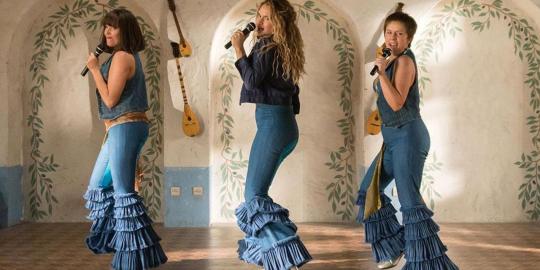
7/10 – Mark Kermode called Here We Go Again the perfect version of what it’s aiming to be. While there are the occasional bits of technical execution that are questionable, I’d still strongly agree with his assessment. It improves on the last film, gives just enough of the better ABBA songs to make up for some of the less memorable ones that pop up around the mid-part of the film, and most impressively of all, delivers a genuine tear-jerker of a last act without compromising its status as feel-good entertainment. A delightfully pleasant surprise.
#The Inquisitive J#film#films#movies#review#film review#movie review#film critic#movie critic#film criticism#film critique#mamma mia#here we go again#mamma mia here we go again#mamma mia here we go again review#the inquisitive j reviews
0 notes
Text

There's a scene in Ghost Dog: The Way of the Samurai where mobster daughter Louise Vargo (Tricia Vessey, with amazing marabou heels and bob hair cut) is lounging in a motel watching black and white cartoons. In this image, Betty Boop - stylistically appropriate- is slapdash added to the screenshot, but the point is all the same: this is an adult who watches cartoons, old ones, is mimicking the screen attire and appears cool doing so.
The film truly drags on, but in scenes where little black and white squares of animation flicker on the screen remind me of, well cartoons in general, and that they made up a core of my early life and that I have reached ‘Adulthood’. The end of VHS, basically, meant my interest waxed and waned and then I moved on. But there is much appeal: enchanting and technicolour-me-beautiful, easily digestible in short time blocks and there is always moral punch line. Are retro cartoons the antidote for Modern Life dissatisfaction?
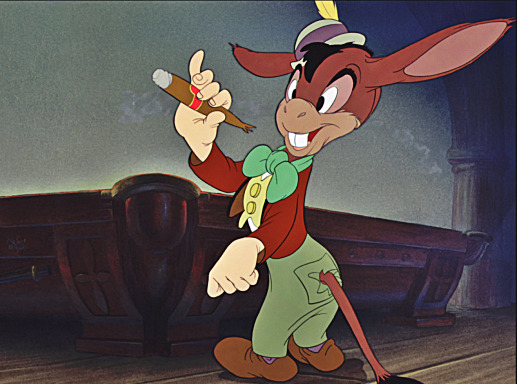
The other day I was thinking about Donkey Island, as I call it, from Pinocchio. A maunder of boys are barricaded in a mad amusement park and grow, Animorph style, into donkeys, a horrific fate. This was unsettling to me as a child. All that high-pitched bucolic shrieking and disobedience, the message was uncontested: it is a fine line between boy and donkey.
Oddly, but not surprising knowing how my synapses work, another one I can remember vividly from a four-in-one video collection we had, presented a similar moral dilemma. In Educated Fish (1937!) a young fish -Tommy Cod- is causing mischief at the A.B.Sea School for Fish, but in the most charming way. Frankly I don’t know what his issue is considering how wonderful every element of aquatic education appears to be.
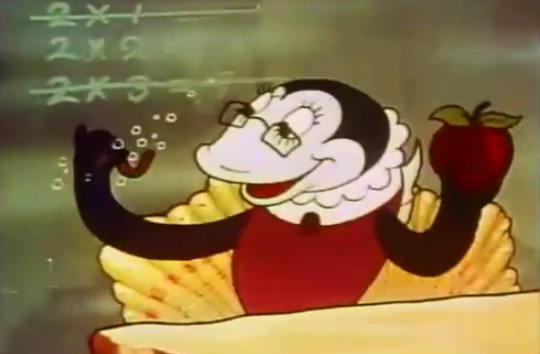
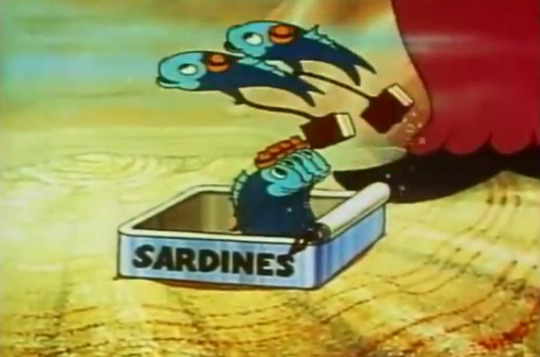

Ignoring the OH&S speech of his teacher, Tommy glides out of classroom library carefree and uneducated until he runs into trouble, hook line and sinker. Actually just watching this on Youtube I’ve realised this is not the animation I was thinking of. Similar yes. Still, what an ogre-sized fisherman would want with a diminutive cod leaves much to the imagination. Also, being an Adult, I immediately catch onto the worm on hook entendre. Tsk, tsk Paramount.
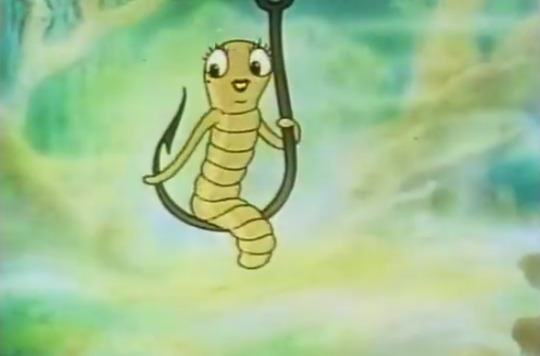
What I was thinking of was Small Fry (1939), also about a young smarmy fish- Junior Catfish- who skips school to join the Big Fry in the local pub, mastering pool better than I could and huffing and puffing to impress the layabouts and local bums. Big ambitions. Yes there is a Donkey Island vibe; everything I watch seems to fit into this type of niche. He swaggers back home, his sassy Mother says her two cents, and unimpressed with reality Jonah goes back. The Big Fry push him into a deep sea Ghost Train with the jingle “you’re not the biggest catfish in the sea” playing in time with the neon outlines of monster fish jumping around Jonah. The song also has the line about “practicing the law” so I assume Jonah goes on to become a lawyer and is routinely loathed by the rest of the population.
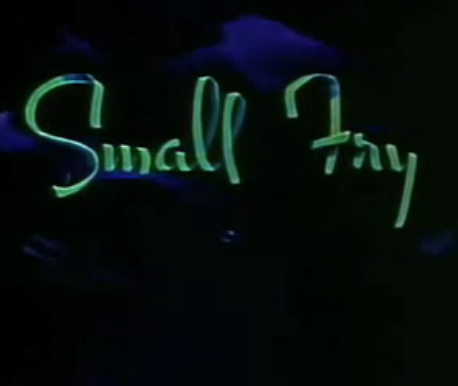
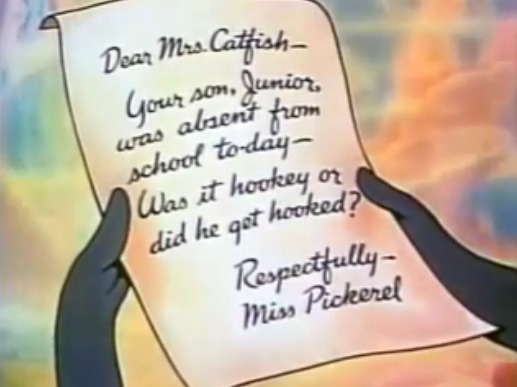
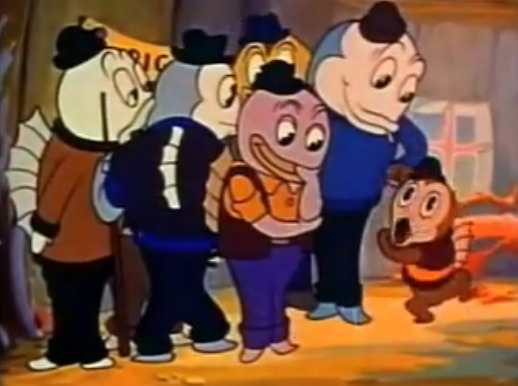
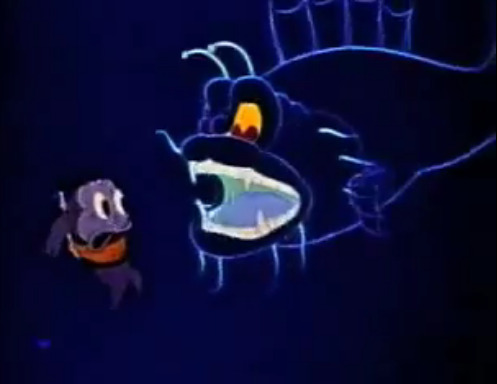
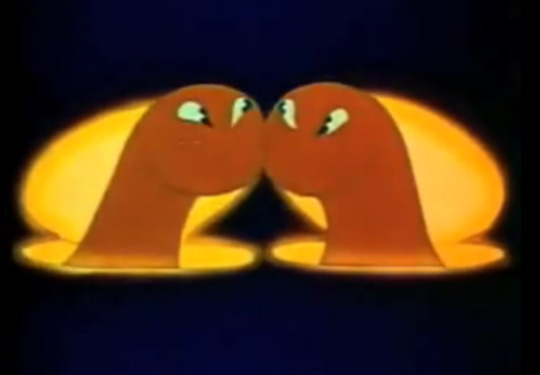
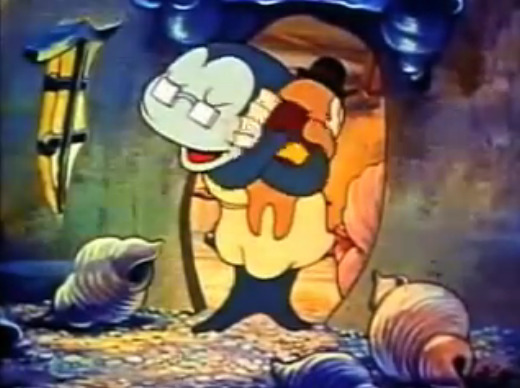
Is it a good thing to admit that I could watch these all day?
The point of this post was to actually upload a video of a favourite Silly Symphony and mention how humorous it is that when I need a mental kick up the arse this cartoon plays in my background of brain, and has done so for at least a decade. Nike slogans don’t cut it, this does.

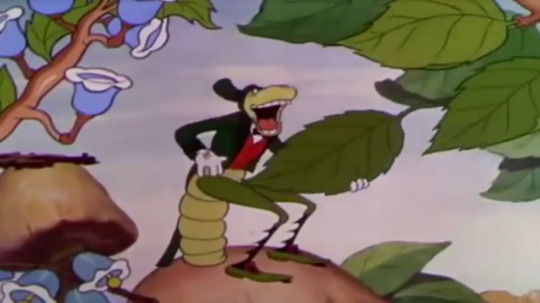
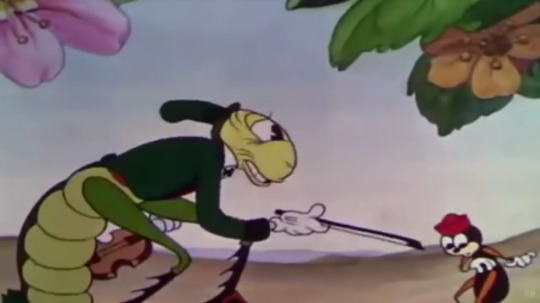

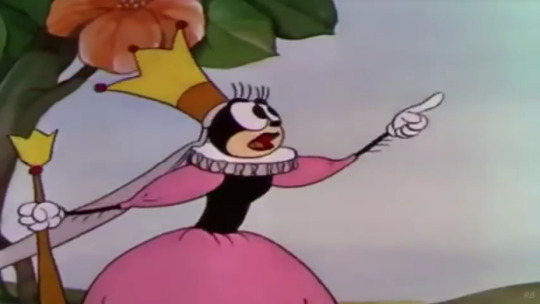
The Grasshopper and the Ants (1934) is a Disney re-telling of the Aesop classic, not the expensive hand wash but the Greek melodrama. The fable describes how a carefree Grasshopper that sounds like Goofy in the animation, sings all summer and is ever so slightly condescending to the ants that methodically gather and stockpile food, like a parent going to Costco before the Christmas period begins. As well as spitting out a lot of saliva, the line that the Grasshopper sings is “the world owes us a living”. Foreboding. It is winter now in real life and in the Youtube video, and I am mildly distressed. The snow settles and the wind howls over the landscape, the grasshopper is feeble, cold and struggling. He finds the ant kingdom, food abounds and central heating and they take him in. Put his legs into tubs of hot water and ask him for a song, which is a re-worked version of the summer hit, “I owe the world a living”. I’m not sure how communist this ploy is, but it worked for me then and it works for me now.
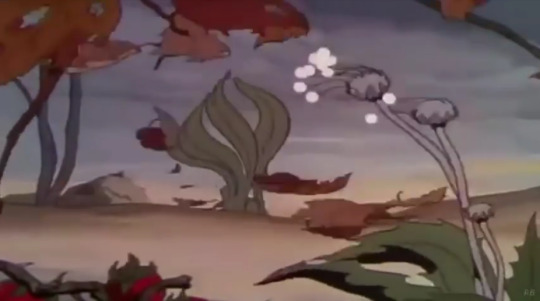

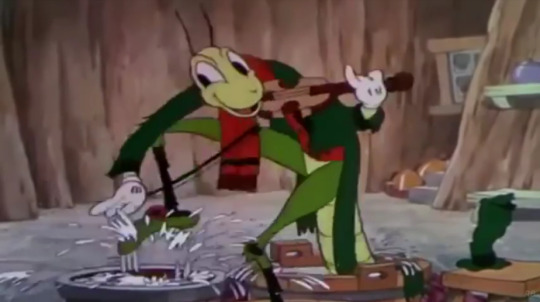
Had work brings rewards. Growing up with migrant parents this was an ethos that was embedded in everything. My Dad is the kind of man who used to say ‘Why are you reading? You could be working’ and my school holidays since primary school consisted of my brother and I sitting on upturned buckets cleaning bricks because my entire life is in the process of renovation. Some people claim their ideal holiday is to ‘do nothing’, to lie on a beach in South East Asia corpse-like and idle. This is my idea of hell. To ‘do nothing’, to literally watch minute by minute disappear forever, and then return from two weeks away with nothing gained, partly because of Bali Belly, nothing accomplished. This is also why I am obsessed with ‘self-initiated creative projects’ because I am so acutely aware that there is not enough time and there never will be. It has to be done NOW.
But more than that, The Grasshopper and the Ants presents a myriad of interpretations for someone like me, who is so obsessed with what I call ‘The Monday Morning’. The implication being that Monday is a new start, a new blank rectangle in the weekly diary; it is an erasure of the past. It is already over; it was over a minute ago. Forget about it. Move on. Watching the cartoon I can see liberal versus conservative, creative industry versus economic industry, spend or save, buy (ha ha ha) a house or go overseas, apply the retinols now before skin turns into a cracked leather handbag, do the project or read the book. Trainspotting monologue aside; you can see the appeal in this and such animations. The bottomless well of meaning, a single message that like a band-aid, can be ripped off and reapplied to whatever the context and situation.
Disturbingly, this entire post has been an expansion of what I initially posted, a quote from Nora Ephron’s Heartburn, specifically:
“And then the dreams break into a million tiny pieces. The dream dies. Which leaves you with a choice: you can settle for reality, or you can go off, like a fool, and dream another dream”.
In the film adaptation Meryl Streep utters this as she plants a cream pie in Jack Nicholson’s face, and pie in the face was the sensation I experienced recently as I came to the realisation that something I had planned on doing will never ever happen. Sad, like anything else in life.
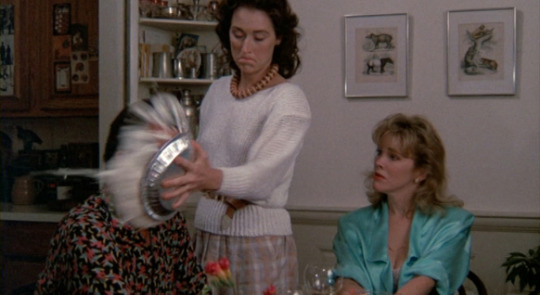
So watching all of this what have I learnt? That I should consider an asymmetrical bob? That I should visit Luna Park, that I can’t play pool, that I have always hated fishing and am now remembering the time I went to a trout farm, paid money to fish in a stagnant pond and whatever was caught had to be clubbed with a wooden pole. The trout tasted like mud. I’m surprised that event didn’t lead me on the path to vegetarianism.
No wonder I stopped watching cartoons when I grew up.
0 notes